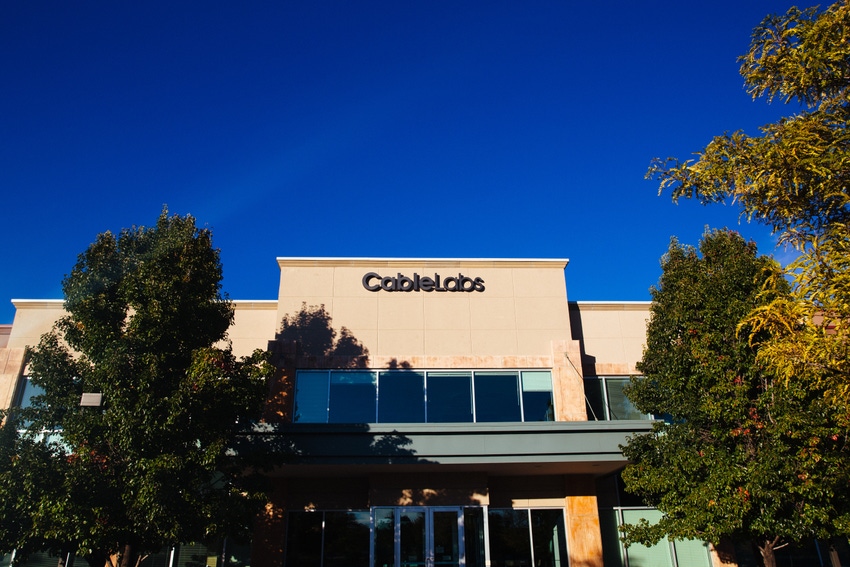CableLabs lays off 23 employees – more than 10%
The cutback partly stems to the merger of CableLabs and SCTE. Sources say it also connects to declining membership fees and a directive from operators that CableLabs reprioritize its resources.

CableLabs confirmed that 23 jobs have been eliminated partly due to organizational changes linked to the integration of the Society of Cable Telecommunications Engineers (SCTE), the tech training and standard-setting organization that became a wholly owned subsidiary of Louisville, Colorado-based CableLabs in early 2021.
That number could have been higher, but CableLabs managed to re-route some employees into other positions tied into higher-priority projects, an industry source said.
"As part of the final steps of integrating SCTE into our organization, shared services (such as HR, IT, etc.) identified overlapping skill sets and roles that are no longer required. Thus we eliminated the duplication," CableLabs said in emailed comments to Light Reading. "This was committed to board of directors in 2020 as part of the planning for the SCTE acquisition."
The official added that the organization is also integrating some technical resources of CableLabs and SCTE into combined teams, a move aimed at boosting efficiency and reducing management overhead.
"There is no net impact on the level of resourcing of our technology teams, and in fact, it is increasing based on the savings being allocated to projects," the official added, noting that CableLabs is creating seven new positions for its technology team.
Sources said Kyrio, the for-profit subsidiary of CableLabs that also handles DOCSIS certification testing, took the brunt of this week's cuts, which were discussed with employees during a town hall meeting held on Thursday. CableLabs vet Jeff Leget was recently appointed president and CEO of Kyrio, succeeding prior unit leader Ike Elliott.
"Kyrio will also support members and vendors for non-certification testing as needed and will serve as the point of coordination for all Lab Services across the organization," CableLabs said.
A reduction in force is a rarity at CableLabs. Its last layoff was eight years ago, when the organization cut 27 staffers as CableLabs looked to ramp up innovation projects under President and CEO Phil McKinney.
Declining membership fees
While the elimination of certain redundancies were part of this week's moves, multiple industry sources familiar with the situation said the layoff also stems from declining membership fees from cable operators and a desire from cable operators for CableLabs to reprioritize where the organization is concentrating its resources.
Those membership dues, a key source of revenues for CableLabs, are calculated as a percentage of service revenues over the operators' hybrid fiber/coax (HFC) networks (video, voice and data). Those declines come as cable operators continue to shed video and wireline voice subs and struggle to grow broadband customers.
Notably, CableLabs membership fees currently are not collected from revenues sourced from members' fiber-to-the-premises (FTTP) or mobile services. Such a change would require an alteration to CableLabs' charter agreement with members, sources said.
Sources said the moves were also made as CableLabs, at the behest of members, directs more energy and resources to certain projects with higher priorities while dropping others. It was not immediately clear how this redistribution is impacting individual projects and initiatives, but CableLabs has been putting more emphasis on wireless/mobile and FTTP technologies of late.
SCTE, meanwhile, is expected to zero in on core areas such as training, industry standards and the annual Cable-Tec Expo. That focus will continue under Maria Popo, a cable industry vet who was recently appointed CEO of SCTE.
'Going back to the basics'
"CableLabs and SCTE are refocusing … and going back to the basics and to their core strengths," a cable exec with knowledge of the situation said. "CableLabs is going back to being CableLabs and SCTE is going back to being SCTE."
CableLabs, the person said, is expected to put less emphasis on being an "innovation engine" for the cable industry. Comcast, the person added, has largely become the "innovation branch for the industry."
"They [CableLabs] were conflicting with Comcast on a number of things that didn't mesh with what Comcast was looking for," the exec added.
Those conflicts were not fully outlined, but the bifurcation of the DOCSIS 4.0 specs is likely one such area that has annoyed Comcast.
The current D4.0 specs support two options – Full Duplex (FDX), which is favored by Comcast, and Extended Spectrum DOCSIS (ESD), an option being explored by other operators.
The good news is that there are multiple silicon options underway for D4.0 – MaxLinear's new Puma 8 chip supports the ESD option; Broadcom is collaborating with Comcast on a set of new unified chips for modems, amplifiers and nodes that support both ESD and FDX.
Read more about:
HeadcountAbout the Author(s)
You May Also Like




_International_Software_Products.jpeg?width=300&auto=webp&quality=80&disable=upscale)







